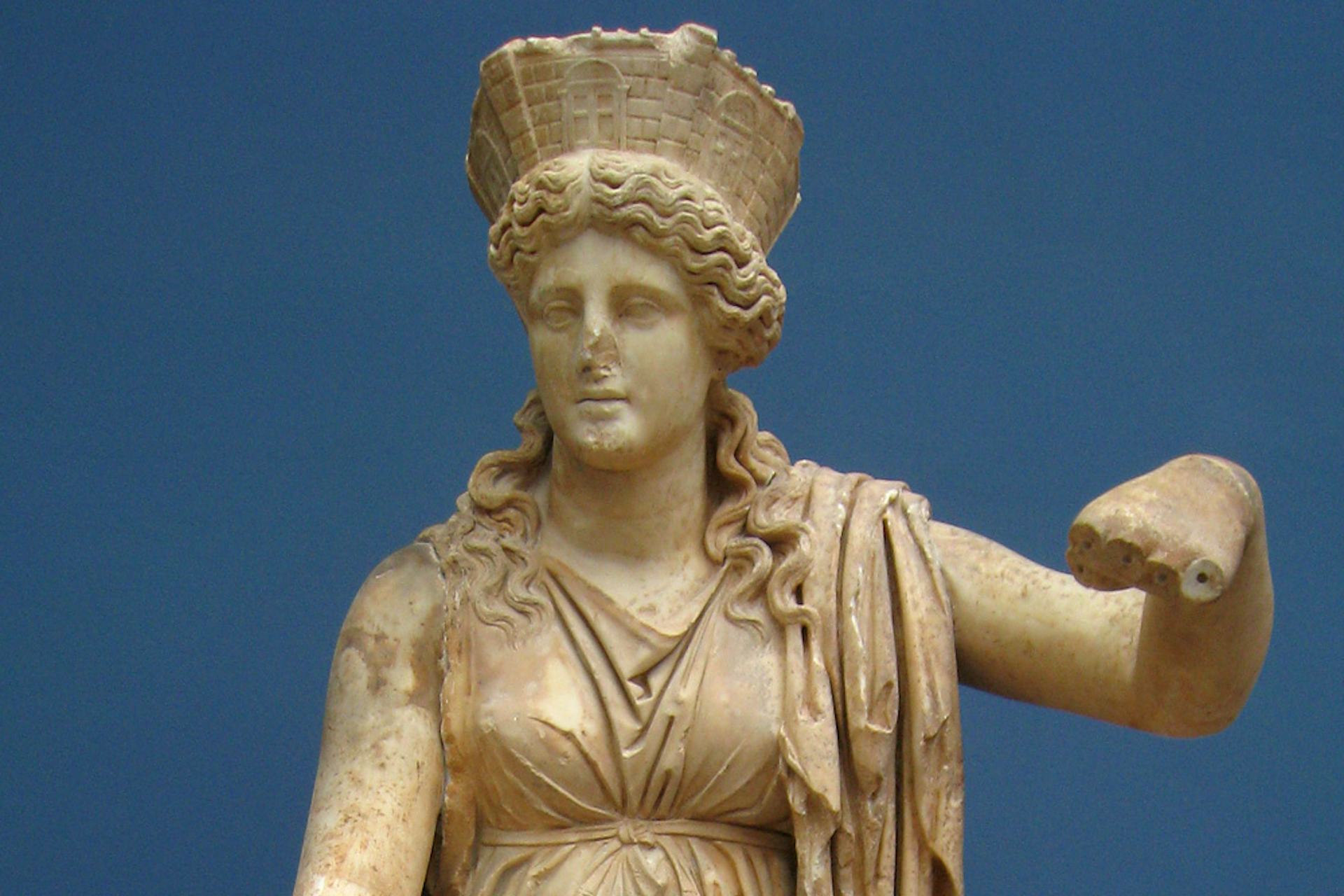Cybele

Marble statue of Cybele from Formia in Latium (circa 60 BCE)
Ny Carlsberg Glyptotek (item no. IN 480) / ChrisOCC BY-SA 3.0Overview
Cybele (“Cybebe” in Lydian) was the great mother goddess of Phrygia, in Anatolia. A goddess of fertility, nature, healing, prophecy, and city protection, Cybele was worshipped throughout the ancient world, often in association with her consort Attis.
Cybele was known in Greece from an early period and was often identified with other mother goddesses such as Rhea or Demeter. She was typically imagined riding in a lion-drawn chariot, wearing a tall, turreted crown, or holding a tympanum (a hand drum). One well-known myth told of how Cybele caused her young lover Attis to castrate himself.
Cybele’s chief cult center was at Pessinus in Phrygia, but her rites were known to the Greeks as well. The Romans officially brought the goddess to their city at the end of the third century BCE.[1]